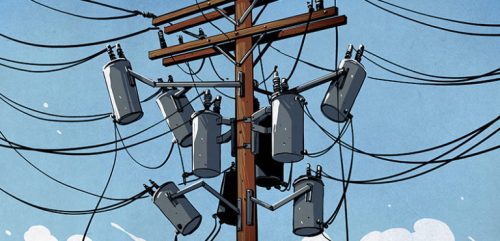
Advancing Distribution Resources Planning in Colorado and beyond
Distribution Resources Planning has become essential in the 21st century due to the changing nature of how we generate, manage, and deliver electricity.
Since first guiding the introduction of legislation in 2011, the Clean Coalition has been a leading voice for Distribution Resources Planning.This foundational policy, known as DRP, has become essential in the 21stcentury due to the changing nature of how we generate, manage, and deliver electricity.
Distributed energy resources (DER) – including local renewables, energy storage, and demand response – offer a suite of valuable services to the grid, such as flexible loads, dispatchable storage and generation, and local voltage support. Coupled with growing deployment of DER by customers and utilities, distribution grids have emerged as centers of innovation and investment on both sides of the customer meter. Yet, traditional utility planning processes were not designed to account for the increasingly dynamic nature of distribution grids, two-way power flows, and utilization of DER. Therefore, new planning processes are necessary.
DRP provides a comprehensive and transparent framework designed to improve distribution system planning, operations, and investment. The goal is optimizing utilization of existing electricity grid infrastructure and DER to modernize and strengthen the grid, while also minimizing costs for customers. Building upon the Clean Coalition’s experience in California, where we continue guiding implementation of DRP and are seeing its benefits first-hand, we are advancing adoption of this vital policy in other states.
Our Colorado work began in 2016, when Clean Coalition staff guided the introduction ofSenate Bill 145. Had it passed, this bill would have directed investor-owned utilities to submit biennial Distribution Resources Plans to the Public Utilities Commission for review, modification if necessary, and approval. Like our early California legislative efforts, Colorado Senate Bill 145 was not enacted into law. However, since the introduction of this bill, the Colorado Public Utilities Commission opened a docket calling for stakeholder input on a number of topics, including whether or not the Commission should adopt formal DRP rules.
The Clean Coalition, working in collaboration with a number of on-the-ground organizations, has submitteddraft rules, as well asreply comments, for the Commission’s consideration. We are supportive of the Commission’s actions to-date and will remain highly engaged, including participation in next month’s first working group meeting, to ensure that Colorado adopts this important policy. The Colorado Energy Office said it well in their initial comments: “distribution system planning is in the best interest of Colorado ratepayers and the time is ripe for the Commission to adopt rules.”

